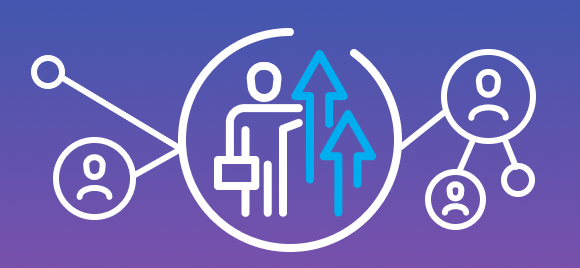Artificial intelligence (AI) has transformed the hiring landscape. Many organizations are turning to AI-powered solutions to streamline their recruitment processes and identify the most qualified candidates. But, the use of AI in hiring raises significant ethical concerns. In this piece, we will explore the debate surrounding AI in hiring and its impact on the contingent workforce.
The Benefits of AI in Hiring
AI can provide a number of benefits for companies looking to streamline their recruitment processes and identify the most qualified candidates. Here are some of the ways in which they can be beneficial:
Reducing Unconscious Bias
AI can help to reduce unconscious bias by removing identifying information from resumes and applications, such as name and address, which can be used to infer race, gender, or ethnicity. Removing this information can help to ensure that candidates are evaluated solely on their skills and experience.
Improving Efficiency
Companies that rely on contingent workers can use AI algorithms to streamline this process. They can quickly sort through large numbers of resumes and applications, identifying qualified candidates efficiently. By leveraging this technology, companies can optimize their hiring process, enabling human recruiters to focus on more high-value tasks such as conducting interviews and building relationships with potential candidates.
Enhancing Candidate Experience
AI can also improve the candidate experience by providing personalized feedback and guidance throughout the hiring process. For example, chatbots can be used to answer candidates’ questions and provide information about the company culture and benefits. This can help keep candidates engaged and informed throughout the process, leading to a more positive overall experience.
Saving Time and Money
By automating certain aspects of the hiring process, such as resume screening and scheduling interviews, AI can save companies significant amounts of time and money. A study by Korn Ferry found that using AI in the recruiting process can save companies up to 63% in time-to-hire costs.
Leveraging Big Data
AI can use big data to identify patterns and trends in candidate information. By analyzing data from past hiring processes, AI can identify the most successful hiring strategies and help to optimize future hiring decisions. This can help companies to make more informed decisions and improve their overall hiring outcomes.
The Ethical Concerns Around AI in Hiring
While AI offers many benefits for hiring processes, there are also significant ethical concerns that must be addressed.
- Lack of regulation: One of the main issues is the lack of regulation surrounding the use of AI in hiring, particularly for contingent workers. Without clear guidelines, companies are often left to self-regulate, which can lead to inconsistent practices and potential ethical violations. This lack of regulation also makes it challenging for candidates to understand the decision-making process and challenge decisions they feel are unfair.
- Transparency: Lack of transparency is a major concern when it comes to using AI in hiring. Candidates should have access to information on how their data is being used, how decisions are being made, and what criteria are being evaluated. In many organizations, full-time employees are often given more access to information about the company and the hiring process than contingent workers. This can put contingent workers at a disadvantage when it comes to understanding the factors that are being used to evaluate their candidacy.
- Access to technology: Unequal access to technology can create an uneven playing field in terms of hiring practices. Smaller companies that rely heavily on contingent workers may not have the same access to AI-powered hiring solutions as larger organizations, potentially leading to discrimination against certain groups of workers. Smaller companies may also miss out on access to some candidates because they lack access to certain talent pools.
- Human Involvement: AI-powered solutions can automate many aspects of the hiring process, but they cannot ultimately replace the human touch. This can be especially true when it comes to evaluating soft skills and cultural fit and making final hiring decisions based on intuition and experience. It is critical to retain a human element involved in the hiring process, particularly when it comes to making final hiring decisions. This can help prevent biases and discrimination and ensure that the most qualified candidate is ultimately selected.
- Unintended Consequences: Even with the best intentions, AI algorithms can have negative consequences. Companies must be aware of these potential consequences and regularly evaluate their AI-powered solutions to ensure they are achieving their intended goals. An algorithm designed to reduce bias may inadvertently perpetuate it by overcorrecting for certain factors, leading to unintended outcomes.
Balancing Efficiency and Ethics
In any organization, finding the balance between efficiency and ethics is a delicate task. While efficiency aims to optimize performance and reduce costs, ethics are concerned with the moral implications of organizational practices. Ignoring ethics can result in legal issues, public outrage, and damage to the company’s reputation. On the other hand, prioritizing ethics over efficiency can lead to lower productivity and reduced competitiveness.
Solutions providers must ensure that their AI systems are designed and trained with ethical principles in mind. This includes ensuring that the data used to train the AI is diverse and representative and that the algorithms used are transparent and auditable. Finding the balance between efficiency and ethics in hiring is an ongoing activity, and at Prosperix, we are constantly working to deliver technology and processes that can make every client’s contingent workforce programs best-in-class.
Schedule a demo with us today:

